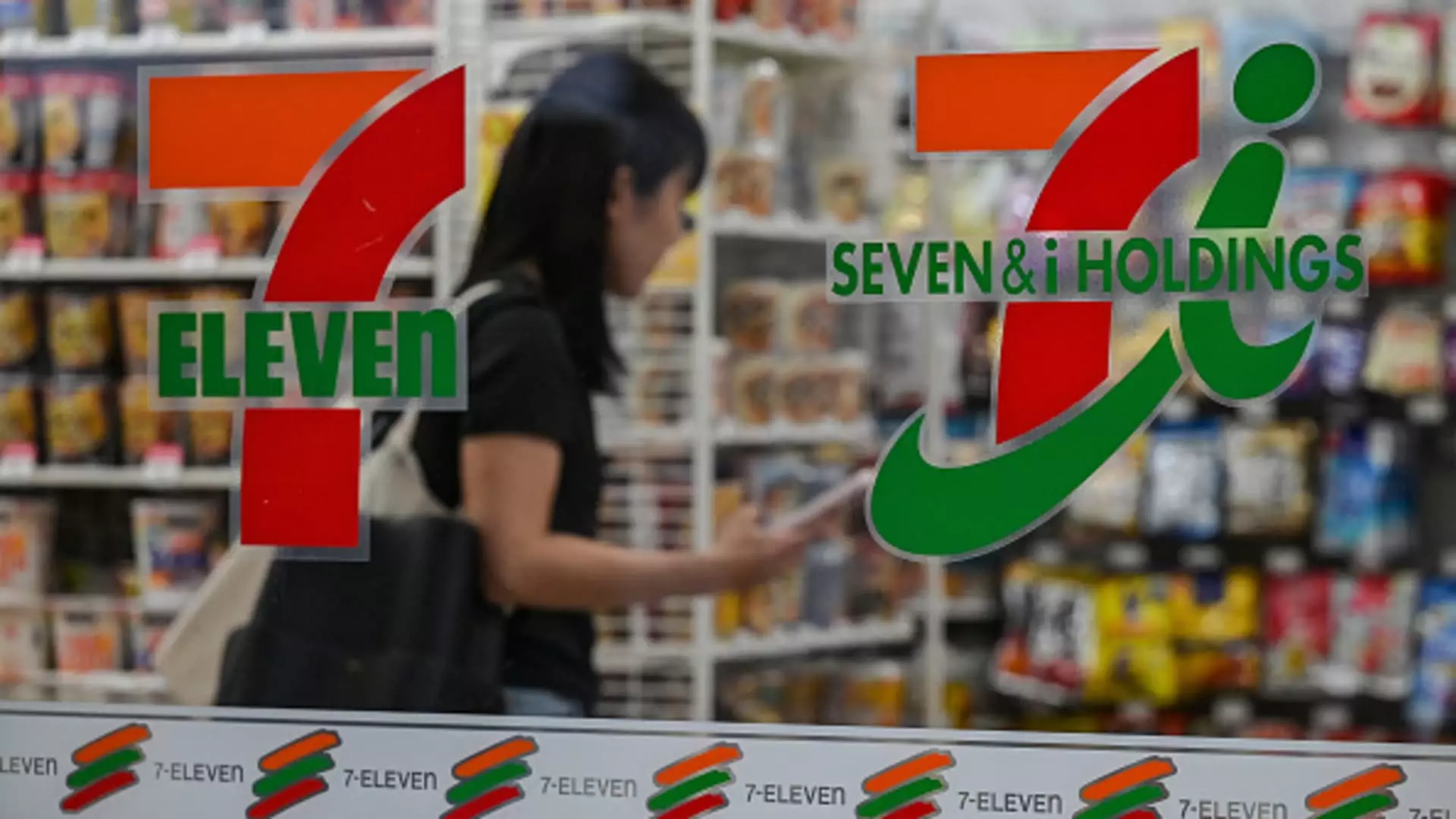In a landscape marked by fluctuating consumer habits and aggressive market competitors, Japanese convenience retailer Seven & i Holdings finds itself navigating turbulent waters. The company, renowned for its ubiquitous 7-Eleven outlets, recently announced a significant downgrade in its earnings forecast, which highlights both its current challenges and strategic initiatives aimed at realignment. As Seven & i prepares to undergo a pivotal restructuring, it faces not only financial hurdles but also scrutiny from investors and potential threats of takeover. This article delves into the complex situation facing the company, assessing its recent developments, external pressures, and the broader implications for the retail sector in Japan.
Seven & i Holdings has lowered its profit projections for the fiscal year ending February 2025 to an anticipated net income of 163 billion yen ($1.09 billion). This marks a staggering 44.4% reduction from its previous forecast of 293 billion yen. The company’s first-half financial results were disappointing; although revenue reached 6.04 trillion yen, net profit stood at only 52.24 billion yen—falling notably short of its own expectations, which called for 111 billion yen in profit. Notably, the decline in profitability aligns with broader trends indicating that consumers are increasingly cautious about their spending patterns, particularly in international markets where Seven & i operates. The company’s overseas convenience stores reported weak customer traffic, leading to a prudent consumption approach among consumers.
In recognition of these market conditions, Seven & i Holdings is proactively restructuring its operations. The company plans to isolate its non-core businesses by creating a standalone subsidiary, a strategic move aimed at streamlining its portfolio and enhancing shareholder value. The planned spin-off includes a charge of approximately 45.88 billion yen related to the Ito-Yokado Online Supermarket, underscoring Seven & i’s intent to rationalize its operations.
The restructuring initiative aims to consolidate 31 various business units under a new intermediate holding company that will oversee the supermarket food sector and specialty store operations. This move is not only a response to current market pressures but also reflects a growing consensus among investors that the company must focus on its primary revenue-generating operations.
Complicating the situation further is the pressure from investors, highlighted by the recent takeover bid by Canadian company Alimentation Couche-Tard (ACT). The initial offer of $14.86 per share was categorically rejected by Seven & i, who cited concerns about its viability for stakeholders and potential antitrust implications. The resistance was further reinforced by an effort to obtain designation as a “core business” in Japan, which now requires foreign investors looking to acquire significant stakes to notify the government and undergo a national security review.
Since the rejection of the initial offer, ACT has submitted a revised bid reportedly increasing the valuation by 20% to approximately $18.19 per share, raising the possibility of a hostile takeover attempt, as noted by market analysts. Nicholas Smith from CLSA insists that an outright hostile approach could unfold considering the opaque nature of Japanese laws regarding corporate takeovers. Conversely, others like Jamie Halse of Senjin Capital believe that securing financing for a hostile bid would be challenging amid current market conditions.
Despite the uncertainties surrounding the takeover bid, Seven & i’s shares have seen an increase of over 33% since news of ACT’s interest became public in August. Trading at around 2,325 Japanese yen, investors appear to view the revised offer favorably. Jesper Koll from Monex Group asserts that the new proposal reflects ACT’s strong commitment to pursuing the acquisition, further emphasizing that the offer represents an attractive premium over prior stock valuations. However, he also warns that the real question goes beyond mere numbers; it touches upon the strategic direction and governance of Seven & i Holdings.
As Seven & i Holdings navigates its way through these challenging market dynamics, the focus will likely remain on restructuring efforts and managing investor relationships. The company is clearly at a critical juncture, with the potential for substantial changes to its operational landscape. As it seeks to solidify its position in the increasingly competitive retail market, stakeholders will be watching closely to see how effectively Seven & i can pivot its strategy in response to the evolving economic climate and the looming specter of external acquisition attempts. Ultimately, how the company handles these pressures now may very well define its trajectory in the years to come.

